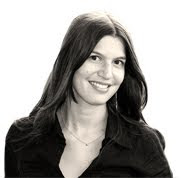Tuesday, December 29, 2009
reads in progress
Monday, November 16, 2009
Literary classics
Wednesday, October 28, 2009
Julie Otsuka + "He that can have Patience can have what he will" (-Ben Franklin)
Friday, October 16, 2009
people of the book-on-cd
Another long drive, another audio book.
For what it's worth, I give it 3 out of 5 stars.
A few other points of note:
1) I think I'm attached to the way words look. After hearing the name of a Bosnian character repeated over and again, I must've visualized the spelling. That's the only way I can explain how shocked—and disturbed!—I was to flip open a paper copy in a bookstore and learn that leading man Azrin was actually Ozren and I'd been mis-picturing him (his name) all along! Just one more element lost in the visual-audio translation.
2) If you're an actor and plan to dramatize a book about Jews that contains several well-known Hebrew words, find out how to pronounce them before you record. Otherwise listeners may find themselves shouting at their car speakers in frustration. Hypothetically speaking. (For the record, "Shabbat" is not pronounced "Shay-bot.")
Monday, October 5, 2009
veteran visitor
On Monday October 5th, Iraq-war vet and Meadville resident Brian McCauley spoke to the students of English 200: The Literary Response to War at Allegheny College. Brian was generous and brave enough to share the intimate—and often harrowing—experience of his service and its aftermath. Spoiler alert: His personal story includes residing in Saddam's former palace in Tikrit, earning a purple heart for surviving a car bomb, and managing the myriad aftereffects of his time abroad.
The video totals about an hour and is broken into two parts.
Brian McCauley: Part I from Courtney Zoffness on Vimeo.


